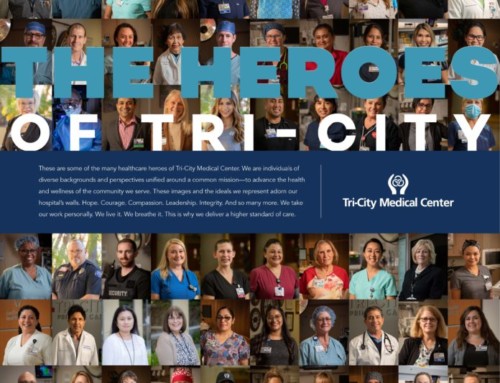 If you’ve ever been in the difficult position of watching a loved one struggle with depression, you know how helpless and isolating it can be. While finding a mental health professional is a key component in managing depression and beginning to recover, there are also ways you can help and support your loved ones.
If you’ve ever been in the difficult position of watching a loved one struggle with depression, you know how helpless and isolating it can be. While finding a mental health professional is a key component in managing depression and beginning to recover, there are also ways you can help and support your loved ones.
Although depression can be a life-altering experience, it can be hard to recognize when you’re actually going through it. Many people tend to chalk up bad days or moods to being a normal part of life but when it becomes more of a pattern that negatively affects life activities, it could be depression. In some cases, it’s easier for you to see that your partner, friend, or family member is depressed because you can see the changes and symptoms with a little more distance and perspective than they can.
So what are the signs of depression, and what exactly can you do to help a loved one going through this situation?
NOTE: If you or someone close to you is considering suicide or self-harm or would like additional support, please don’t hesitate to reach out to the National Suicide Prevention Lifeline at 1-800-273-8255. If you’re local to San Diego, Tri-City Medical offers behavioral health services on both an inpatient and outpatient basis.
Signs of Depression
Apathy or Loss of Interest
When someone begins showing apathy for the things they once loved, this can be one of the hallmark signs of depression. While opting out of a yoga class or taking a couple weeks away from piano lessons isn’t necessarily cause for alarm, a prolonged, maintained lack of interest is worth noting.
Changes in Sleep Patterns
Something else to keep an eye out for is any change in sleeping patterns. People experiencing depression may see changes in their usual routines — while some people may sleep more or at different times of the day, others may sleep less and find it hard to get settled. It’s the change itself, rather than the type of change, that’s notable here.
Changes in Eating Patterns
Other important changes to observe are those within typical eating patterns. If someone you love is eating far more or less than usual, or if their dining habits have changed for no reason you can think of, it’s worth seeing whether the shift might be related to mood changes or depression.
Fatigue or Energy Loss
While many people associate depression with sadness, we’ve seen it’s much more than that. However, one of the symptoms that may look like sadness is fatigue or energy loss. Having depression can be exhausting, and people who experience it may seem lethargic or slow-moving compared to their formerly active, chipper selves.
Irritability
Finally, if you suspect someone you love is depressed, you may notice they’re more snappy and irritable than usual. Though this symptom is more commonly associated with men, anyone who is feeling depressed may exhibit it.
One of these signs on its own might not be alarming and could be caused by normal life changes, changes in season, or any number of factors; however, if you see two or more signs or if they seem to be disrupting your loved one’s day-to-day and quality of life, it’s worth talking to them about seeking help.
Ways You Can Help
Be Present
In order to catch the signs of depression and help those you love, it’s important to be there for them. In the most obvious, literal sense, that means making time, sitting down with them, and spending time together. But it also applies in the more figurative sense: Communicate your support, care, and availability.
Simply being there can help them more than you know.
Don’t Judge
There is a lot of stigma around mental illness, and depression is no different. Remember, depression is not a choice, a weakness, or a flaw — it is a serious illness that requires treatment like any other. You can help support your loved ones by accepting them as they are and doing some research to clear up any questions (or frustrations!) you might have.
There are support groups available for people with depressed loved ones; try doing a Google search for ones in your area or look for your local National Alliance on Mental Illness (NAMI) chapter.
Urge Them to Seek Help
Remember, depression can look different from person to person. Some people may exhibit all of the signs, while others just suffer from a couple. For some, depression might limit their ability to socialize and work, while others may readily go on with their day-to-day life. Finally, one type of treatment may work for one person, while it does nothing for another individual.
Each person and each solution will be a little different. If you want to support your loved ones with depression, the best thing you can do is help them find a healthcare professional for an evaluation and diagnosis so they can develop a treatment plan together. Once you’re clued into the treatment plan and what it involves, you can offer support in the ways we’ve outlined.
Contact our doctors at Tri-City Medical for an appointment or more information on mental illness.





